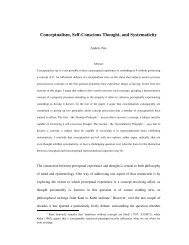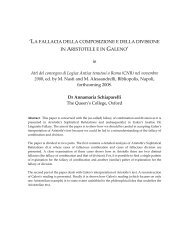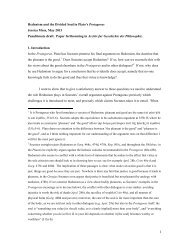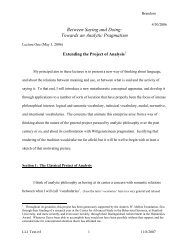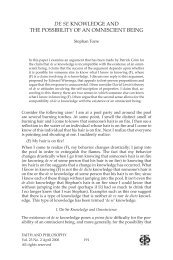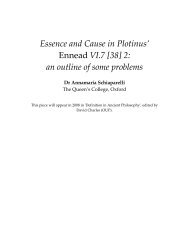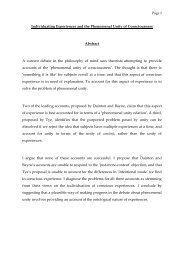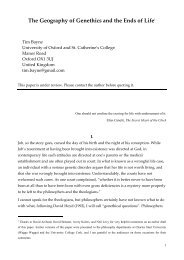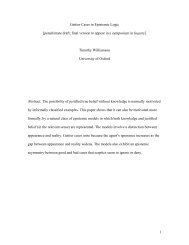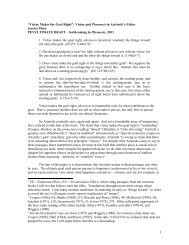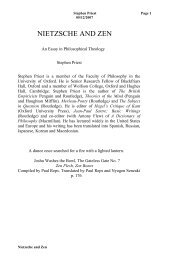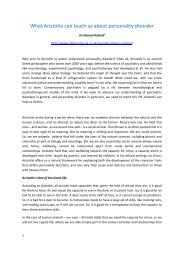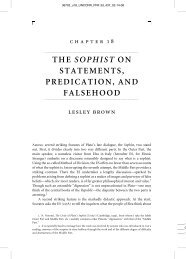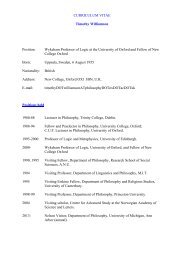Understanding as a Finite Ability Joseph K. Schear Christ Church ...
Understanding as a Finite Ability Joseph K. Schear Christ Church ...
Understanding as a Finite Ability Joseph K. Schear Christ Church ...
Create successful ePaper yourself
Turn your PDF publications into a flip-book with our unique Google optimized e-Paper software.
To appear in Wittgenstein and Heidegger (Routledge, 2013) eds. D. Egan, S. Reynolds, and A.Wendland<br />
Second, it is worth stressing the link between the single gulp intellect and the effacement<br />
of the distinction between actuality and possibility. I opened this essay by distinguishing two<br />
Kantian characterizations of the infinite intellect, <strong>as</strong> the productive intellect and <strong>as</strong> the single<br />
gulp intellect. A third characterization offered by Kant is negative, namely that “the distinction<br />
between the actual and the possible does not enter into the representation of this intellect” (Kant<br />
[1790] 2001, 273). Let me call this the modal characterization of the infinite intellect. We can<br />
see how the modal characterization follows from the single gulp characterization. For a single<br />
gulp intellect, the actuality of its object coincides with the totality of the object’s possibilities: to<br />
gr<strong>as</strong>p something in a single gulp is for all its possibilities to be actual, made present to the<br />
unlimited intuition of an infinite intellect. Accordingly, the single gulp intellect is a form of<br />
intellect that h<strong>as</strong> no place for a distinction between the actual and possible.<br />
One consequence of this is that the infinite intellect, however penetrating, is in no<br />
position to do grammatical investigation. In a well-known p<strong>as</strong>sage, Wittgenstein says: “We feel<br />
<strong>as</strong> if we had to see right into phenomena: yet our investigation is directed not towards<br />
phenomena, but rather, <strong>as</strong> one might say, towards the ‘possibilities’ of phenomena” (PI §90).<br />
Contr<strong>as</strong>ting our form of understanding to that of a single gulp intellect is a reminder that the<br />
distinction between the actual and the possible does enter into the representation of the human<br />
intellect. Whether any form of understanding that does not appreciate this distinction is truly<br />
intelligible is a difficult question (to which I will briefly return in conclusion). What is clear, at<br />
any rate, is that any being bereft of the distinction would not engage in the philosophical<br />
enterprise of directing itself toward the possibilities of (actual) phenomena.<br />
I have so far argued that Wittgenstein’s remarks on understanding <strong>as</strong> an ability belong in<br />
opposition to a broadly Cartesian position according to which understanding consists of a mental



